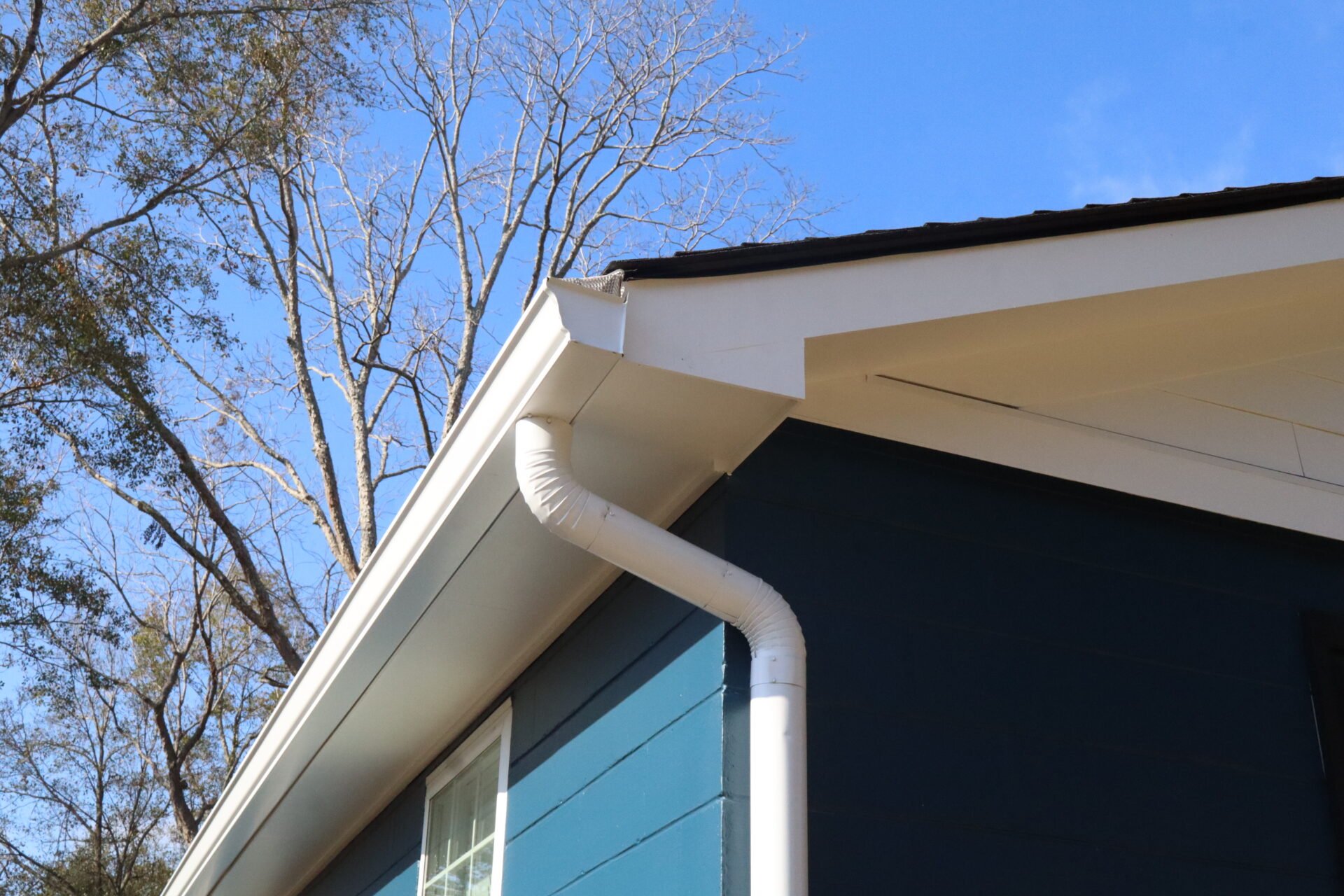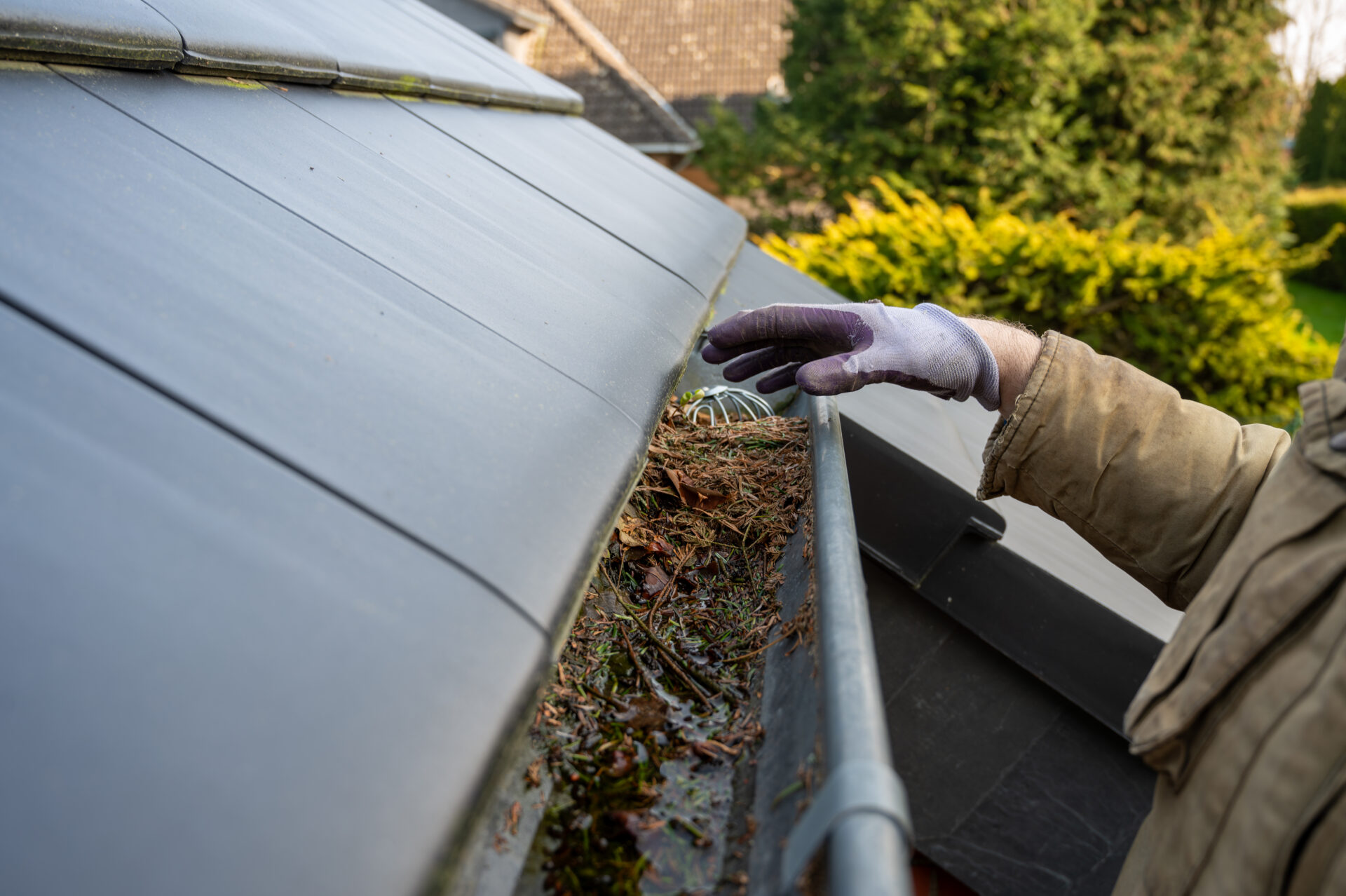After installing gutter systems throughout the Charleston area for over a decade, we’ve seen it all, including what happens when homeowners underestimate just how much water their roof has to handle. Our summer storms aren’t just passing showers, which is why undersized gutters can be a major problem.
Why Gutter Size Matters in Charleston
Intense summer downpours, year-round humidity and the looming threat of hurricane season all make Charleston one of the toughest places on gutters. Add in our coastal climate and frequent thermal expansion, and your system must be more than “good enough.” It should be tailored to your home.
Common issues we see with poorly sized gutters include…
During heavy storms:
- Water overflows like a waterfall, bypassing the system completely.
- Downspouts can’t keep up, creating backups and pooling.
- Fast-moving water from steep roofs overwhelms gutters on impact.
Year-round effects:
- Foundation cracks from water pooling near your home.
- Rotting fascia boards behind the gutter line.
- Damaged siding from constant overflow.
- Landscape erosion that destroys flower beds and mulch.
- Mold and mildew growth in basements or crawl spaces.
It’s not just about picking the biggest option, either. If not properly pitched, oversized gutters can also cause problems. They may hold standing water, collect debris or even sag under their own weight. (We dive into gutter pitch in our blog: “Here’s Why Your Gutters Pitch Matters”
The Four Critical Factors We Consider
Our rainwater management experts take a critical approach to building your gutters. During this process, we assess the following factors:
- Your Roof’s Collection Capacity
Your roof acts like a giant funnel during a storm. A 1,000-square-foot roof can collect about 623 gallons of water per inch of rainfall.
- Charleston’s Rainfall Intensity
Charleston County receives an average annual precipitation of 51.06 inches, but the real challenge is intensity. Our coastal storms can produce rainfall rates of two to six inches per hour, depending on the time of year. This can quickly overwhelm undersized gutters.
- Gutter Style and Flow Capacity
The style and size of your gutters dramatically impact their water-handling capacity:
K-Style Gutters:
- Five-inch K-style gutters can handle approximately 1,200–1,400 gallons per hour under optimal conditions.
- Six-inch K-style gutters can manage closer to 2,000 gallons per hour.
- According to This Old House, five-inch K-style gutters handle the rainfall on most houses in most parts of the country.
Half-Round Gutters:
- This type of gutter is common on Charleston’s historic homes but typically holds less water than K-style gutters of the same size.
- Five-inch half-round gutters can handle up to 2,500 square feet of roof drainage area.
Downspout Design: The Critical Bottleneck
Gutters are only as effective as their drainage system. A standard 2×3-inch downspout can handle approximately 600 gallons per hour. If your entire roof feeds into a single, undersized downspout, it creates a bottleneck that leads to overflow during heavy rains.
Professional Rule of Thumb: Install one downspout for every 20-30 feet of gutter, adjusted for roof size and local rainfall intensity. In Charleston’s high-rainfall environment, we often recommend spacing downspouts closer together or using larger 3×4-inch downspouts for optimal performance.
Red Flags Your Gutters Are the Wrong Size
You don’t have to be a pro to spot when something’s off. Look out for:
During or after storms:
- Water pouring over edges
- Gutters pulling away from the fascia
- Water stains on siding or trim
- Pools of water around the foundation
Everyday signs:
- Sagging or bowing gutters
- Erosion below the gutter line
- Peeling paint on fascia boards
- Moldy or musty odors indoors
Think you’ve spotted any of those signs? It might be time for a closer look. When we inspect gutter systems, we go beyond what’s visible. We’re checking for the critical details that impact performance, longevity and storm-readiness.
P.S. Materials matter in Charleston’s coastal environment. Our pros typically recommend aluminum or copper gutters. Aluminum handles our humidity well and won’t rust, while copper develops that beautiful patina over time. Steel gutters, while strong, can be problematic in our salty air environment.
Need an inspection, repair or just honest advice?
Holy City Gutterworks is your go-to Charleston gutter company. From gutter inspections to gutter repairs, new gutter installations and gutter guards, our local team ensures your home is safe from rainwater. Contact us today for a free estimate or to learn how we can help protect your home year-round.


